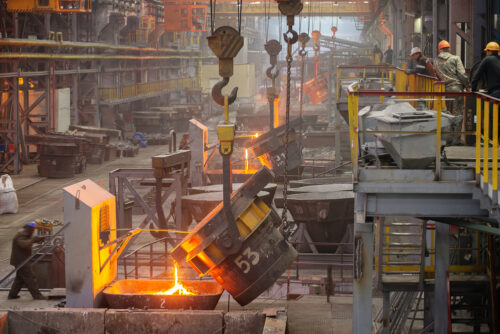Stuck on the starting line: How the UK is falling behind Europe in the race to clean steel
The UK is falling behind other European countries in the race to decarbonise the steel industry, finds ECIU report.
Last updated:
There are 23 hydrogen-based steel production projects, the likely long-term successor to using coking coal, either planned or underway across the European Union, according this ECIU research.
In the UK, however, there are no concrete plans for using hydrogen to produce primary steel, and only very vague proposals for one carbon capture-based project.
Across the EU companies such as Germany’s Thyssenkrupp are aiming to produce 50,000 tonnes of climate neutral steel per year by 2022, and ArcelorMittal targeting the delivery of 600,000 tonnes of green steel by the same date.
Underpinning some of the most ambitious hydrogen steel projects is Germany’s recently released hydrogen strategy, which is backed by €9bn in funding, aiming for the use of green hydrogen and supported by plans for a dedicated pipeline network.
Falling behind EU European competitors is also a major employment risk, with the UK steel industry providing direct jobs for more than 33,700 workers, a number that more than doubles when employment in supply chains is included.
The sector also contributes £2.1 billion per year (GVA) towards the UK economy, a figure that jumps to £4.8bn when supply chains are included.
